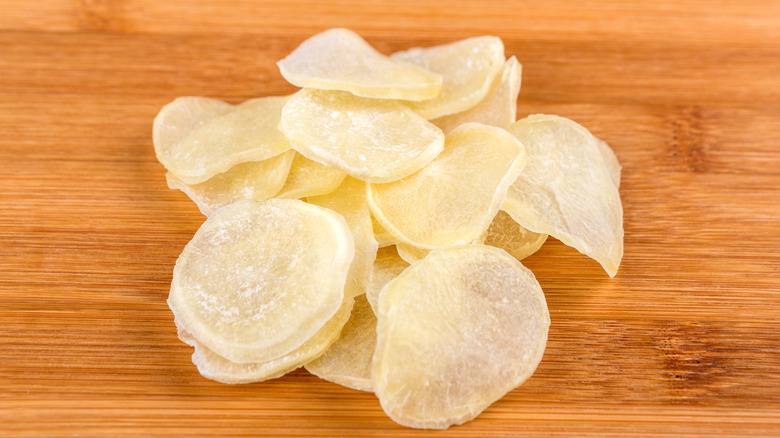You May Want To Think Twice Before Ordering Waffle House Hash Browns
Whether you take yours smothered, covered, scattered, or all of the above, no trip to Waffle House would be complete without a heaping pile of hash browns. The famous 24-hour diner is something of a cultural icon in the Southern part of the U.S.; the name may indicate otherwise, but anyone who's ever had the pleasure of eating at one of these no-frills establishments will tell you that it's not the chain's waffles that keep people coming back for more. It's the hash browns.
Yet, even in the case of Waffle House's beloved hash browns, it turns out you can't please everyone. In a Reddit thread asking fast-food employees to share which menu items they would never order from their place of employment, one user who claimed to have been a former employee at Waffle House had the nerve to throw its hash browns under the bus. "Everything else we cooked was fresh-ish, like all the meat and toppings were real, but the hash browns ... they came dehydrated in a carton," the user claimed.
They explained that the dehydrated potatoes had to be soaked in water for a few hours before getting cooked. While the former Waffle House employee acknowledged that this trade secret isn't so egregious compared to other fast-food establishments, the rehydration process still turned them off.
Dehydrated potatoes aren't as unhealthy as you might think
Say what you will about Waffle House patrons, but no one can accuse them of being disloyal. While some Reddit users took to the thread to defend the dehydrated potato, others made it clear that no one was going to sully Waffle House's hash browns on their watch. "Like I'm gonna go to Waffle House and not eat hash browns. Yeah right," one user said. Another was undeterred by the information, writing, "Don't make me want hash browns at 3am! They're actually open right now."
While thinking about dehydrated potatoes soaking in a bath of cool water may not entice your appetite, dehydrating food as a means of preservation is one of the oldest tricks in the book. Like us, bacteria, yeast, and mold require water to survive. For these organisms to grow and cause spoilage, water has to be present in the food source. However, during the dehydration process, moisture is removed, and with it, so too is the opportunity for spoilage.
While fresh potatoes can stay good for two months, dehydrated potatoes have a shelf life of between one and two years, which is likely why so many restaurants use them. Once rehydrated, they provide the same taste, texture, and nutrition as fresh potatoes, which makes them an excellent source of potassium, vitamin C, and fiber.

